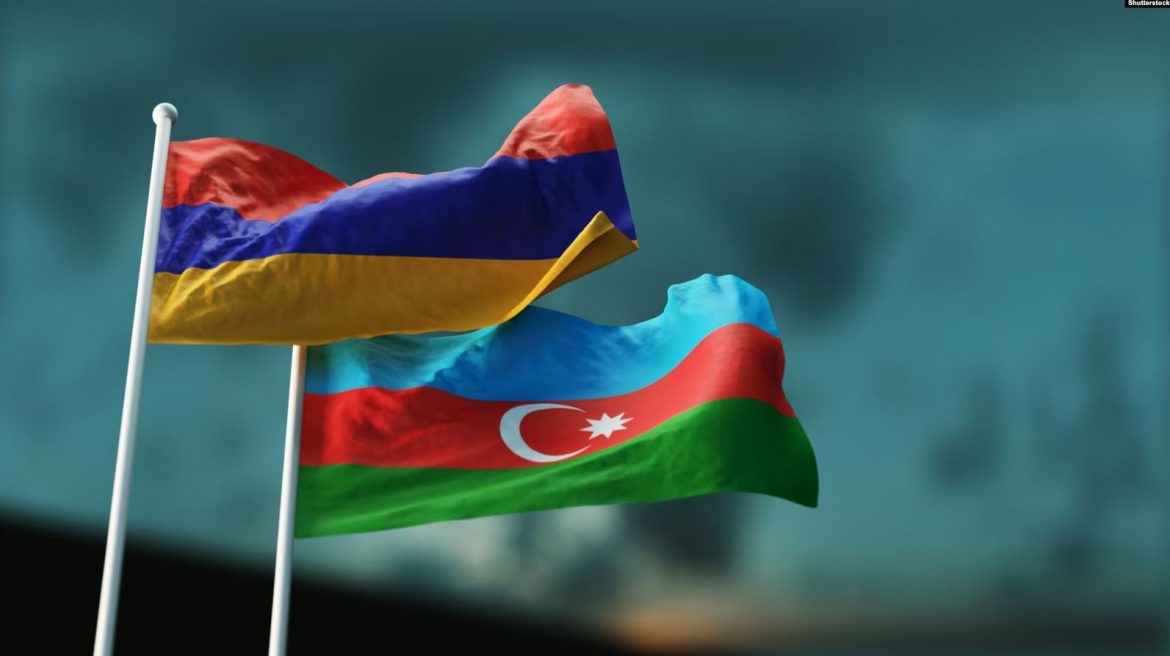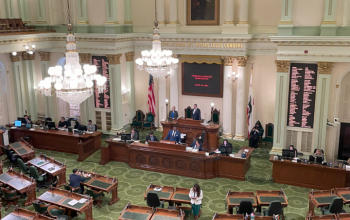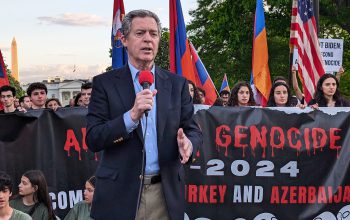Azerbaijan has offered to conduct direction negotiations with Armenia on a peace treaty at a mutually acceptable venue, including along the state border between the two countries.
“Azerbaijan is ready for direct bilateral negotiations with Armenia for the early conclusion of a peace agreement,” Azerbaijan’s Foreign Ministry said on Tuesday.
“We believe that the two countries should decide the future of their relations together. This stagnation in negotiations does not contribute to the stability of the region,” it added.
The Azerbaijani ministry said that “the responsibility for the continuation of the peace process, including the choice of a mutually acceptable venue or the decision to meet at the state border, belongs to the two countries.” It urged the Armenian side to “avoid new unnecessary delays.”
The statement from Baku follows the announcement by Armenia’s Foreign Ministry that Yerevan has submitted its sixth proposal on a peace agreement to Azerbaijan following Armenian Prime Minister Nikol Pashinyan’s November 18 call for “intensifying diplomatic efforts to achieve the signing of a peace treaty with Azerbaijan.”
“Armenia remains committed to concluding and signing a document on normalization of relations based on previously announced principles,” the Armenian ministry said.
Official Yerevan did not immediately respond to Azerbaijan’s call for direct negotiations that Baku has made after what appears to be its rejection of Western mediation in the process.
During the past several days Azerbaijan indicated that it rejected France and the United States as mediators because of their “pro-Armenian” bias.
During the weekend the Azerbaijani Foreign Ministry said that while Baku remained open to European Union-mediated negotiations with Armenia, above all, it preferred “direct talks” with Yerevan.
In his recent public statements Armenian Prime Minister Nikol Pashiyian urged the Azerbaijani leadership to publicly commit to the three key principles for achieving peace that he said were agreed upon by the parties during several rounds of Western-mediated negotiations in 2022 and 2023.
Pashinyan outlined those principles as follows: Armenia and Azerbaijan recognize each other’s territorial integrity, the delimitation of the countries’ borders is based on the 1991 Alma-Ata Declaration by which former Soviet republics recognized each other’s borders after the collapse of the USSR, and that regional trade and transport links are opened while respecting sovereign jurisdictions.
Pashinyan made those statements as Aliyev appeared to be avoiding Western-mediated meetings with the Armenian leader since Baku carried out in September a one-day military operation in Nagorno-Karabakh that caused more than100,000 people, virtually the entire Armenian population of the region, to flee to Armenia.
Western leaders have urged Azerbaijan to respect the right of Armenians to return to their homes in Nagorno-Karabakh and ensure the safety of those who decide to go back to the region that is now fully controlled by Baku.
In a November 20 interview with RFE/RL’s Azerbaijani Service Toivo Klaar, the EU’s Special Representative for the South Caucasus and the crisis in Georgia, said that Brussels is looking for “rapid steps” towards the normalization of relations between Armenia and Azerbaijan.
“Some people in Brussels, in member states are concerned that this is taking, in our view, too long. We don’t see any reason why the process of normalization cannot be quicker. The fact that there is no fighting, the fact that there are no daily reports of shooting or selling on the border does not mean that the things are normal. What is important is to move from this present situation of absence of fighting to actual normalization, which means signing of the peace treaty, which means opening of communications, which means delimitation of the border and distancing of forces so that there is really a sense of security,” he said.
“Frankly, I believe that it is really in Baku’s hands to demonstrate that this process can be fast and can be substantial. And that is what we are looking for, and that is what is creating some uncertainty in different quarters as to why it is taking so long. We don’t see a reason why this process should be taking so long. We believe that it could be faster,” Klaar underscored.
Source: Azatutyun.am




